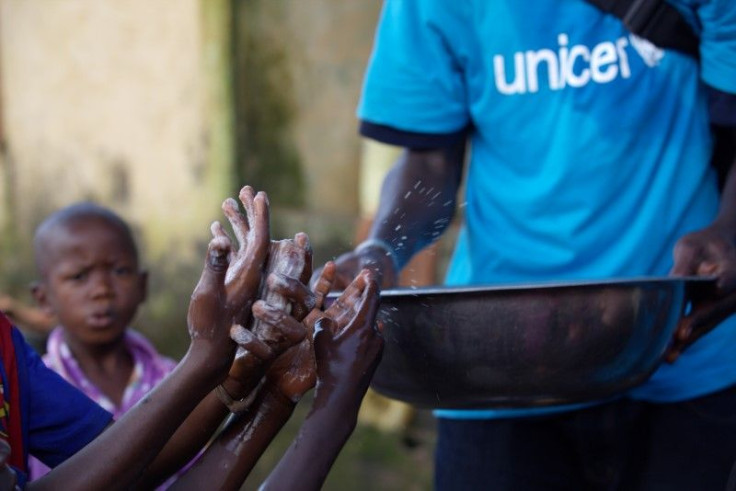UNICEF Makes Record Appeal To Help 60 Million Children In Crisis

LONDON (Thomson Reuters Foundation) - The U.N. Children's Fund launched a record $3.1 billion appeal on Thursday to enable it to help children caught up in a "new generation" of conflicts and disasters round the world, $1 billion more than it sought in 2014.
A series of more complex and destructive crises, natural disasters and emergencies such as the Ebola epidemic, are putting some 60 million children in extraordinary danger of violence, hunger, disease and abuse, UNICEF said.
"From deadly natural disasters to brutal conflicts and fast-spreading epidemics, children across the world are facing a new generation of humanitarian crises," Afshan Khan, UNICEF director of emergency programs, said in a statement.
"Whether in the headlines or hidden from view, emergencies sparked by social fracture, climate change and disease are stalking children in ways we have never seen before."
Khan stressed later in an interview with the Thomson Reuters Foundation that UNICEF was committed to protecting children regardless of whether or not the crisis that affected them was attracting widespread attention.
More than one in 10 children now live in countries or regions affected by armed conflict, UNICEF said in the report Humanitarian Action for Children that accompanied the appeal. The biggest amount in the appeal, $903 million, was for Syria and the region around it, followed by $500 million for West African countries affected by the Ebola epidemic. More that 5.6 million children need support in Syria, as do 1.7 million who have fled the five-year-old conflict for neighboring countries, UNICEF said.
"For the past four years, these children have been witnessing violence and death daily and have been missing out on the very basics in life," Khan said in the statement. "This appeal will help secure a future for not only the children of Syria but all children around the world who are impacted by humanitarian crises."
Money raised for Ebola-affected areas will be used to isolate and treat new cases and prevent new outbreaks, UNICEF said. UNICEF also appealed for $32 million for Ukraine, where it said 5.2 million people, one third of them children, were living in conflict zones and 600,000 were displaced. As well as drawing attention to the growing number of emergencies, the UNICEF report highlighted the increasing interdependence of humanitarian and development work.
UNICEF said the funds raised would also help strengthen national preparedness systems against future disasters.
FORGOTTEN CRISES
The appeal, which covers 71 countries and a total of 98 million people, includes underfunded and forgotten crises, including Afghanistan, the Palestinian Territories and Niger.
"It's peak time just after the election (in Afghanistan) and we do want to make sure that there is some restoration of basic services for kids there," Khan told the Thomson Reuters Foundation in a phone interview from Geneva.
In the Palestinian Territories UNICEF wants to restore access to education for some 30,000 children and provide them with psycho-social support for trauma, she said. The agency also wants to reach half a million children there with mine-risk education and awareness programs.
In Niger, UNICEF will focus on malnutrition and measles vaccinations and on Ebola prevention programs, Khan said.
CAMEROON ON THE BRINK
Cameroon, struggling with an influx of refugees from Nigeria, which is battling Boko Haram Islamist militants, is on the brink of a humanitarian crisis, said Khan.
"(We) want to make sure that host communities are not at an additional disadvantage as a result of an influx of people and to beef up services for nutrition, water and sanitation and health," she said. "We are going to have to have some very strong child protection activities ... to make sure that there's no further recruitment of children into armed groups."
Khan stressed that UNICEF has an equal commitment to children regardless of whether the crises that affect them make headlines.
"To me, whether it's Cameroon, Central African Republic, Niger or Palestine, those kids all deserve an equal chance and equal opportunity," she said. "Where a child is born (should not) determine their destiny and whether they're going to get humanitarian assistance or not."
(Reporting By Magdalena Mis; Editing by Tim Pearce)
Published by Medicaldaily.com



























